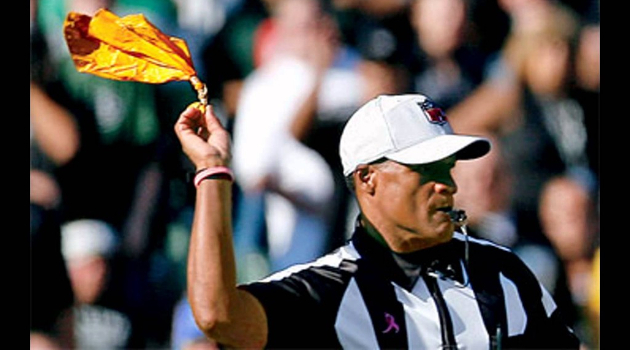I’ve written about how taxes have a big impact on soccer (a quaint game with little or no scoring that Europeans play with their feet).
Taxes affect both the decisions of players and the success of teams.
Grasping and greedy governments also have an impact on football. Especially if teams play in Europe.
…the Los Angeles Chargers and Tennessee Titans traveled across the Atlantic to play a game in London’s Wembley Stadium. …Players spoke of the burdens of traveling so far to play a game, especially the team from California that had to cross eight time zones. Players also spoke out about the tax nightmare they faced when they got to the UK.
…players talked ahead of time to their CPAs to determine the tax hit they’d take for the privilege of such a long road trip… Great Britain…levies high taxes on athletes who visit for an athletic match. Teams from California — the Raiders, Chargers, and Rams — already face the highest state income tax in the nation with a top rate of 13.3 percent. Of course, players also have to pay federal income tax. …To top it all off, those players who receive one of their 16 paychecks in London pay a 45 percent tax on a prorated amount based on the number of days they spend in the country. Bottom line: Players on California teams could end up paying 60 percent or more in income taxes for that game check. …For non-resident foreign athletes, HM Revenue and Customs (HMRC) reserves the right to tax not only the income they earn from competing in the match but a portion of any endorsement money they earn worldwide.
No wonder some of the world’s top athletes don’t want to compete in the United Kingdom.
And what about the NFL players who got hit with a 60 percent tax rate for one game?
Those players are lucky they’re not Cam Newton, who paid a 198.8 percent tax for playing in the 2016 Super Bowl.
Last year’s tax bill also impacts professional football in a negative way. The IRS has decided that sports teams don’t count as “pass-through” businesses, as noted by Accounting Today.
Two major sports franchises might soon be on the auction block following Microsoft Corp. co-founder Paul Allen’s death last week. But a recent Internal Revenue Service rule could cut the teams’ sales prices. Allen died with no heirs and a $26 billion estate, including the National Football League’s Seattle Seahawks…
The teams together are worth more than $3 billion, according to the Bloomberg Billionaires Index. …the IRS said in August that team owners would be barred from the write-off — one of the biggest benefits in the law — that allows owners of pass-through entities such as partnerships and limited liability companies to deduct as much as 20 percent of their taxable income. …Arthur Hazlitt, a tax partner at O’Melveny & Myers LLP in New York who provided the tax structure and planning advice for hedge fund manager David Tepper’s acquisition of the Carolina Panthers, estimates the IRS rules could spur potential bidders to offer at least tens of millions of dollars less.
Gee, what a surprise. Higher tax burdens lower the value of income-producing assets.
Something to keep in mind next them there’s a debate on whether we should be double-taxing dividends and capital gains.
Or the death tax.
Let’s close with a report from Bloomberg about some new research about the impact of taxes on team performance.
The 2017 law could put teams in states with high personal income tax rates at a disadvantage when negotiating with free agents thanks to new limits on deductions, including for state and local taxes, according to tax economist Matthias Petutschnig of the Vienna University of Economics and Business.
Petutschnig’s research into team performance over more than two decades shows that National Football League franchises based in high-tax states lost more games on average during the regular season compared to teams in low or no-tax states. That’s because of the NFL’s salary cap for teams, according to Petutschnig; if they have to give certain players more money to compensate for higher taxes, it reduces how much they pay other players and lowers the team’s overall talent level. “The new tax law exacerbates my findings and makes it harder for high-tax teams to put together a high-quality roster,” Petutschnig said.
Here’s a chart from the article.
And here are more details.
A player for the Miami Dolphins or Houston Texans, where no state income taxes are levied, “was always going to come out a whole lot better than somebody playing in New York,” said Jerome Glickman, a director at accounting firm Friedman LLP who works with professional athletes. “Now, it’s worse.” …a free agent considering a California team compared to a team in Texas or Florida would need to make 10 percent to 12 percent more to compensate for his state tax bill, said NFL agent Joe Linta… the Raiders — who will eventually move to Las Vegas in no-tax Nevada — have often made the case that unequal tax rates create an uneven playing field. Quarterback Jimmy Garoppolo’s five-year $137.5 million contract with the San Francisco 49ers will mean an additional $3 million tax bill under the new tax law… Garoppolo would have saved $2 million in taxes under the new code had he instead signed with the Denver Broncos in lower-tax Colorado.
By the way, other scholars have reached similar conclusions, so Professor Petutschnig’s research should be viewed as yet another addition to the powerful body of evidence about the harmful effect of punitive tax policy.
P.S. I think nations have the right to tax income earned inside their borders, so I’m not theoretically opposed to the U.K. taxing athletes who earn income on British soil. But I don’t favor punitive rates. And I don’t think the IRS should add injury to injury by then taxing the same income. That lesson even applies to royalty.


